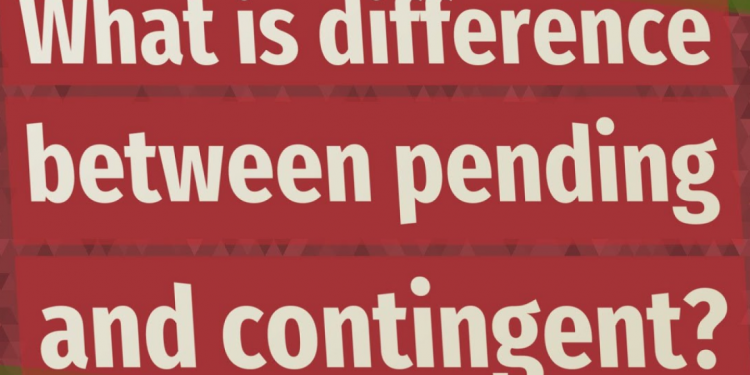Introduction
The use of the terms “contingent” and “pending” in real estate has a significant impact on how negotiations proceed. A contingent property is one that is subject to negotiation, while a pending property has been offered for sale but has not yet been sold. The key difference between the two types of properties is that pending properties are subject to change – if the buyer cannot be found or the price drops, the property can become contingent. For more information about the difference between pending and contingent visit https://www.fastexpert.com/blog/contingent-versus-pending-real-estate/.
what are contingent and pending sales in real estate?
Contingent and Pending sales refer to a property’s potential sale status that can change at any time. A contingent sale is one in which the seller has not yet agreed to sell the property, while a pending sale is one in which the buyer or seller has agreed to purchase but has not yet finalized the deal.
How do contingent and pending sales differ?
Contingent sales are those in which the buyer has a certain level of commitment but has not yet made a purchase. Pending sales are those in which there is no specific purchase commitment, but the buyer is actively considering purchasing the product or service. Each type of sale has its own advantages and disadvantages, so it’s important to know which one you’re dealing with before making your decision. Here are some key points to consider when comparing contingent and pending sales:
1. Contingent sales can be more profitable because they often result in higher prices than pending sales.
2. Pending sales can be more beneficial to the seller because they tend to result in fewer cancellations and lower rates of resolved disputes.
What are the benefits of using a contingent sale?
Contingent sale agreements are becoming more popular because they offer a number of benefits to businesses. When buyers have the option to purchase an item or service at a later date, it can increase sales. Additionally, contingent sales can help businesses to better manage their inventory by allowing them to adjust prices and quantities as needed. Finally, contingent sale agreements can create goodwill between buyers and sellers.
When is a contingent sale appropriate?
Contingent sales are more common than ever before, but there’s still some confusion about when they’re the right option for your business. Here’s what you need to know to make an informed decision.
1. A contingent sale is a type of sale in which the buyer does not have an obligation to purchase the product or service until the sale is completed.
2. When you decide to go with a contingent sale, it’s important to understand your customer base and what motivates them. For example, if you sell products that need to be installed or used, then a contingent sale may not be the best option for your business because potential buyers may not feel comfortable committing until they know more about the product.
3. It’s also important to consider how your customers will view the purchase once it completes.
What are the benefits of using a pending sale?
A pending sale is an important tool in marketing your product or service. It allows the buyer to think about the purchase without having to make a decision.
When is a pending sale appropriate?
When is it appropriate to sell a pending home? There is no one answer to this question, as the decision of when to sell a pending home depends on many factors specific to your situation. However, there are some general tips you can follow in order to make the decision easier.
First, consider how long you have been waiting for a sale. If you have been holding onto your home for an extended period of time, it may be time to consider selling. On the other hand, if you have only been waiting a few months or weeks, then it may not be necessary to sell right away.
Second, think about your financial situation. If you are in debt or struggling financially, selling your pending home may not be the best option for you. Selling too soon could cause problems down the road and put unnecessary stress on your finances.
Final words
The main difference between pending and contingent in real estate is that a contingent offer is one that is not yet approved by the seller, while a pending offer is one that has been approved by the seller. It’s important to understand these differences when making an offer on a property, as they can mean the difference between your offer being accepted or rejected.












